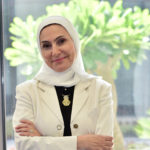
Lifelong learning initiative urges graduates to reach for the moon
‘Moonshot thinking’ was the focus of Egade Business School’s latest lifelong learning programme for alumni, writes Tim Banerjee Dhoul


Identifying the presence and concentration of microplastics in fish, a health alert system for air quality and 3D food printing were among the winning projects of the Global Space Sustainability Challenge (GSSC) announced towards the end of 2022.
The challenge aims to further the cause of sustainability worldwide by finding economically viable and scalable solutions that can help accelerate the global transition towards decarbonisation.
The idea to hold the GSSC stemmed from our belief that businesses should not make tradeoffs between making profits and preserving the planet; these two goals can work in synergy and great opportunities lie at their intersection.
In particular, business schools should advocate for purpose-driven startups and sustainable business practices. It is our responsibility to educate and empower the next generation of leaders and global change agents and visionaries who will contribute in the creation of a sustainable future on Earth.
Since grand challenges defy conventional solutions, we decided to collaborate with Metavisionaries, a space technology startup, and other well-established aerospace companies/entities, such as Blue Origin Club for The Future, to leverage space and come up with innovative solutions. We wanted to educate young people about the limitless resources of space and inspire business schools to take the lead in building space innovation ecosystems and highlight their role in creating growth opportunities in the space economy.
The challenge is also designed to leverages the momentum of the FIFA World Cup 2022 and build on the work of Qatar’s Supreme Committee of Legacy and Delivery, responsible for the planning, delivery and hosting of this global event.
Multidisciplinary teams between the ages of 16 to 26 years, from educational institutions around the globe, joined forces to use space access, science and technology to tackle pressing sustainability issues that relate to the SDGs and competed across five tracks: Climate Solutions (SDG 13); Sustainable Food and Agriculture (SDG 2); Life Science and Healthcare (SDG 3); Sustainable Consumption and Production (SDG 12); Sustainable Arts, Fashion and 3D Printing.
This challenge has illustrated some of the ways in which space can fuel innovations and improve lives during the post-Covid-19 recovery, especially at a time when economic growth and societal wellbeing are key objectives for nations around the globe. More specifically, and as showcased by some of winning teams’ innovative ideas, space science and technologies can play an instrumental role in advancing sustainability by, for example, monitoring the environment and natural resources, improving food safety and identifying health risks.
But perhaps most importantly, projects that involve young people from different countries and disciplines contribute to knowledge sharing and collaborative long-lasting learning across domains and countries. This is especially important, since the space sector should get more support and attention from governments, private investors and educators.
It is hoped that such opportunities can also shed light on the importance of integrating space curriculum in K12 education and creating space-related disciplines in higher academic institutions. In the process, such space-related activities can play a significant role in inspiring future generations and promoting STEM disciplines, especially in countries where numbers are falling significantly. This will help create an ecosystem that advances the space economy and creates new opportunities for space-related innovations and startups. This is why business schools should take the lead in initiatives such as the GSSC.
Here is a full list of the GSSC’s winning projects by track:
Life Science and Healthcare:
Project title: Particulate Matter Monitoring
Description: a health alert system, which is a device that reads PM2.5 particles and sends the data to an app working in cohesion with a satellite to plot concentration points on a map.
Sustainable Food and Agriculture:
Project title: Ocean Microplastics: determining the future of seafood production
Description: A prediction model for the concentration of microplastics, fish quality and production in different fishing areas ased around collecting satellite and land-based data related to microplastic concentration and water properties. The aim is to improve fish quality and quantity delivered to the world population.
Sustainable Consumption and Production:
Project title: Self-Exploring, Self-Deorbiting CubeSats
Description: A mechanism for self-deorbiting CubeSats [miniaturised satellites with a mass of no more than 2kg] to finish their active life in Low Earth Orbit and reuse the re-entered material.
Sustainable Arts, Fashion and 3D Printing:
Project title: 3D food printing in space
Description: 3D food printing allows for the creation of nutritionally complete designs to keep astronauts physically healthy and enables them to make custom meals inflight. The ability to combine personal needs with individually tailored nutrition-design would be stimulating and good for mental wellbeing.
Climate Solutions (joint winners):
Project 1 title: Phytoplankton
Description: Providing safe habitats for phytoplankton to increase oxygen levels in our atmosphere and monitoring their health and status globally from space.
Project 2 title: Clean Space Energy Station
Description: Building a space station that fuels planes with alternative energy.

Rana Sobh is a professor of marketing and dean of the College of Business and Economics at Qatar University. She received her PhD from the University of Auckland. Sobh advocates for a paradigm shift in business education to empower the next generation of ethical and competent leaders who can create a sustainable future for all.

‘Moonshot thinking’ was the focus of Egade Business School’s latest lifelong learning programme for alumni, writes Tim Banerjee Dhoul

Creativity can be enhanced and managed through a variety of techniques, says Ayoa founder Chris Griffiths, so anyone can beat blocks and boost the creative thinking of themselves and their teams

How should Business Schools harness learnings from the Covid-19 pandemic and position themselves in a digital landscape?
For questions about editorial opportunities, please contact:

